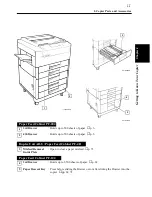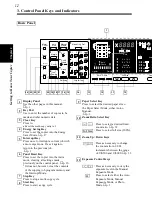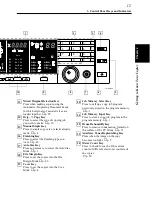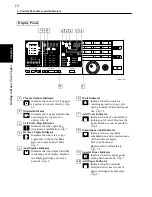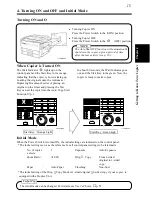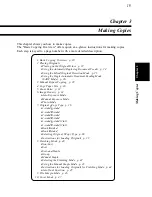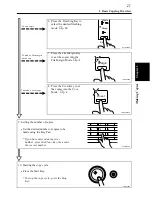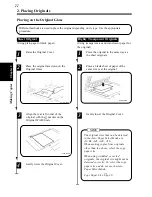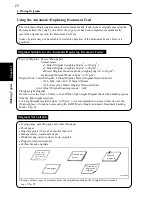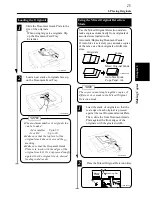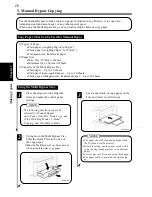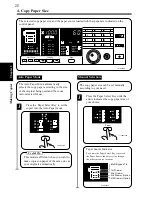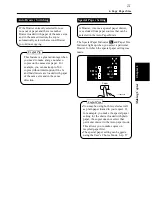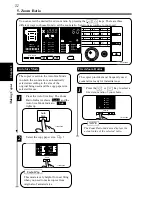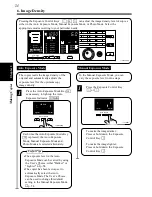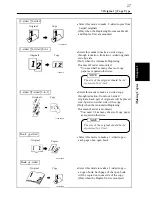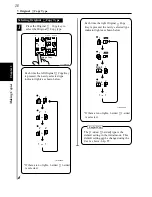
2. Placing Originals
The Automatic/Duplexing Document Feeder automatically feeds in sheet originals placed on the
Document Feed Tray one by one. After the copy cycle has been completed, it automatically
ejects the original out onto the Document Exit Tray.
Some originals may not be suitable for reliable operation of the Document Feeder. Here is a
guideline.
Using the Automatic/Duplexing Document Feed
Originals Suitable for the Automatic/Duplexing Document Feeder
Type of Originals: Sheets (Plain paper)
Normal mode
Original Size: 1-Sided Original, 2-Sided Original, Mixed Original Detection Mode
A3L, B4L, A4L, A4C, 210mm
×
330mm
A5L (Except for Mixed Original Detection Mode
2-in-1 (Dual Original Scanning) mode : A4C
∗
Lightweight Original
Be sure to use the User’s Choice to turn ON the Lightweight Original Mode when making copies
from the lightweight originals.
For a Lightweight original (40g/m
2
to 50g/m
2
), it is recommended to place it directly onto the
Original Glass or to make copies using the SADF Mode (Single Automatic Document Feeding
Mode).
➭
p. 26
•
1-Sided Original (weighing 50g/m
2
to 110g/m
2
)
•
2-Sided Original (weighing 60g/m
2
to 90g/m
2
)
•
Mixed Original Detection mode (weighing 60g/m
2
to 90g/m
2
)
Lightweight Original Mode (40g/m
2
to 110g/m
2
)
Originals Not Suitable
•
Typing paper, paraffin paper, and other thin paper
•
Thick paper
•
Originals greater than A3 or smaller than A5L
•
Transparencies, translucent paper
•
Wrinkled, dog-eared, curled, or torn originals
•
Clipped or stapled originals
•
Carbon-backed originals
1134O073AA
Typing paper,
paraffin paper,
and other thin
paper
Thick paper
Continuous
forms
Wrinkled or
dog-eared
original
Stapled
originals
∗
For any of these types of originals, place the original manually on the Original Glass to make a
copy.
➭
p. 27
Ch
a
p
te
r 3
M
aki
ng C
o
p
ies
24


